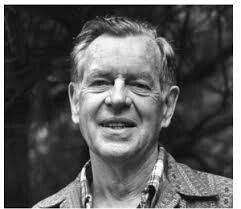Newsletter
Campbell
Posted on September 10, 2025, tagged as Alcoholics Anonymous, Heroic Journey, Joseph Campbell, Twelve Steps

Joseph Campbell was one of the premier thought leaders of the twentieth century. He popularized the idea of the heroic journey, a way of looking at life as a great challenge with potentially great rewards if the challenge is accepted. I explored this idea in depth in my recent book, The Twelve Step Pathway: A Heroic Journey of Recovery. My belief is that anyone who has developed a potentially life-threatening addiction can view this as a challenge to be overcome. The key is to recognize that one can only be successful if one accepts help. In Campbell’s examples of mythological heroes, who face seemingly impossible challenges, the help usually come from the gods in the form of magical powers or superhuman strength. In the AA program the help comes from the program itself, a sponsor, and from a “higher power,” often, but not necessarily thought of as God. The catchphrase I use to make this point is “Only you can do it, but you can’t do it alone.”
In the book I show how the twelve steps of Alcoholic Anonymous support the same path of recovery as the eight stages of Campbell’s heroic journey. What both Campbell and AA both agree on is that the pathway is a spiritual one. What this means may vary from one person to the next, but I would say that it refers to a dimension of existence that goes beyond what we can see, hear, feel, taste, or even think. For many it brings them to an understanding of how their life can be purposeful. Once this has occurred, it can be said that the heroic quest has been completed. However, it turns out that the journey never ends. The hero meets continuing challenges in life that are met with the same determination and tools that brought him or her to achieve the quest in the first place.
Campbell says that the hero in mythology brings a treasure back to the home community that saves them from starvation, conquest, disease, or whatever the community needs for survival. He makes the remarkable statement that the purpose of the heroic journey is “to redeem the world.” Therefore, it is important to understand that with addiction recovery, or whatever other challenge is faced, one has the responsibility to use one’s knowledge and experience to help others. Moreover, those who fail to do so risk losing the achievement they worked so hard to gain. The AA program is based on the importance of helping newcomers get and stay sober. It is not enough to get sober oneself. The catchphrase within the AA program, thus, is “You have to give it away in order to keep it.” So, it is a life-long journey of helping others as one walks along a spiritual path.
